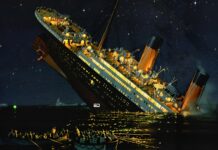*cue Doctor Who sound effects*
Back in Time is ED’s newspaper-like column that reports an incident from the past as though it has happened just yesterday. It allows the reader to re-live it several years later, on the date it had occurred.
November 9, 1989: And it has finally come crashing down. The Wall which separated the world into two halves is no more.
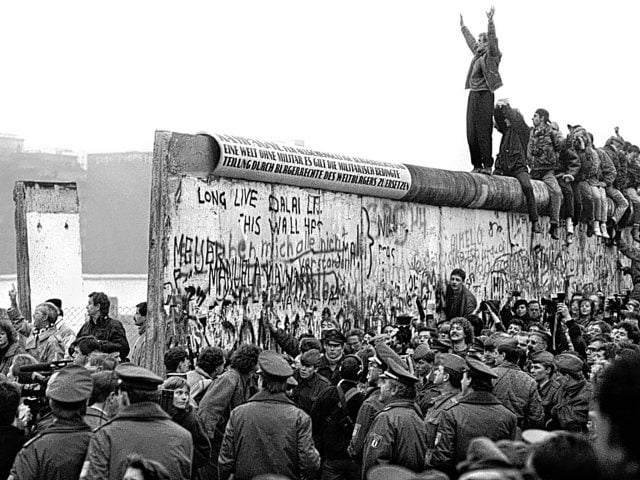
This is a momentous day for everyone across the globe, but especially for the Berliners who have lived face to face with this monolith for over two decades and have dreamed all that while of this day.
Today, the communist party chief Günter Schabowski announced to the press that
“Permanent relocations can be done through all border checkpoints between the GDR (East Germany) into the FRG (West Germany) or West Berlin”
It is not known at this time whether these instructions came directly from the politburo or there was some miscommunication in its journey from Moscow to Berlin.
But upon hearing this news, East Berliners rushed to the wall check posts along with their West Berlin counterparts, demanding from the guards a passage to West Berlin because Schabowski had “said so”.

When the guards refused, they persisted, forcing them to confer with their bosses. This too apparently was not enough for the eager East Berliners who climbed on the wall, much to the surprise and chagrin of the guards.
The guards, who are helpless in front of the massive turnout of Berliners that assaulted the gates, have now caved in and opened the gates. Some enterprising Berliners have also brought along with them hammers and chisels. And have begun chipping away at the very thing that had torn apart numerous families and divided a people.
It suffices to say, that the wall is no more. The Iron Curtain is no more. East and West Germany are no more. Germany is once again, one. The joy of this momentous occasion can be seen on the faces of the Berliners who flood the street.
The atmosphere is charged with ecstatic excitement. Excitement at the start of a new era. People are crying, laughing and dancing in the street like little children. Festivities are springing up on every street corner. The relief is clearly visible.
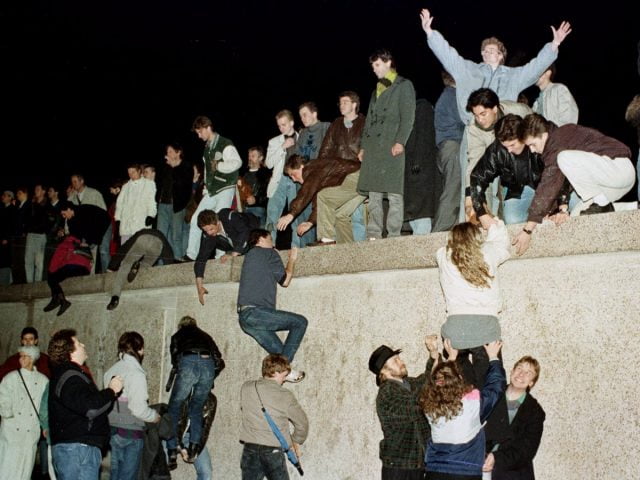
Families long lost are reunited, people who have not seen each other for decades have broken down in each others’ arms in the middle of the street. The words of Kennedy have rung true
“Ich bin ein Berliner!”… All free men, wherever they may live, are citizens of Berlin, and therefore, as a free man, I take pride in the words “Ich bin ein Berliner!”
At the time of going to print, reports are still coming in about further breakdown of the border all across the country. We are still unclear on who actually issued the order that Schabowski announced to the people.
Read More: 23 Years Ago Today, The Shawshank Redemption Was Released: We Take You Back In Time
Post-Scriptum
The Berlin Wall (and the subsequent border between the two Germanys) was one of the most divisive structures to exist. After World War 2, Germany was divided into two, one ruled by the USSR (which became communist) and the other by the allies (which became capitalist). Berlin, the German capital, is technically in East Germany, was also divided up into two.
Due to a variety of factors, the Allies administered West Germany prospered while the Soviet East Germany fell down the economic ladder. Life was bad in the east. As a result, people wanted to cross over into West Germany. This was frowned upon by the East German authorities.
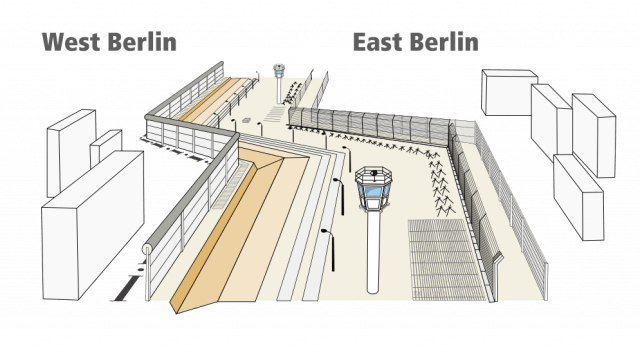
The emigration was especially troubling in Berlin because many people crossed over into West Berlin and never returned to East Germany. As a result, in the dead of the night of August 12, 1961, workers dig up all the roads between West and East Berlin and fenced the entire border. And thus, the Berlin Wall was born.

It went through 4 iterations, each time becoming even more robust. Many people still tried to cross over. Some were successful, some were not. Those who were welcomed warmly by the West. And those who died were mostly buried in unmarked graves.
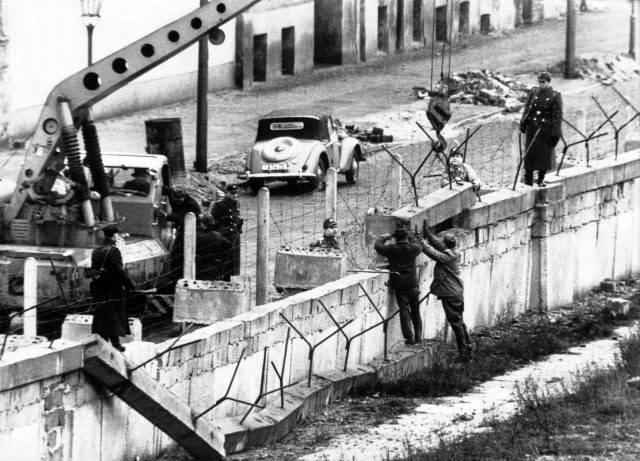
The wall was unpopular from the very beginning, as it made the already hellish life of Berliners even more so. Families were torn apart, businesses died, and East Berliners led an oppressed life.
But in the late 1980s, as the hold of communism and the USSR began to lose its grip over the countries it had conquered such as Hungary and Czechoslovakia, the sentiment seeped through to East Germany as well.
This, combined with the constant attempts by the West to rouse the world against the wall finally brought a movement which gathered steam over the years. There were numerous concerts by uber-famous rock stars like David Bowie in West Berlin, near the wall. Kennedy’s famous “Ich bin ein Berliner” and Raegan’s famous “Mr. Gobrachev, tear down this wall” all helped add even more steam to this movement.
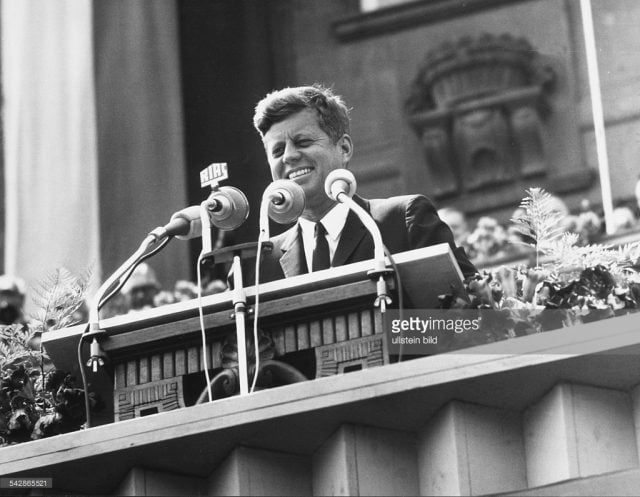
It finally came to a head in 1989 and on November 9, 1989 (November 10, here in India) there was a blunder by the local party chief in announcing the relocation policy for East German escapees. He misunderstood his orders and announced that people could relocate to West Germany as well, and the rest is history.
The Berlin wall was the lynchpin, when it came falling down, so did communism and USSR.
Image Credits: Google Images
You would also like to read:
http://edtimes.in/2017/09/5-years-ago-today-bjp-carried-out-a-bandh-against-fuel-price-hike-we-take-you-back-in-time/

























